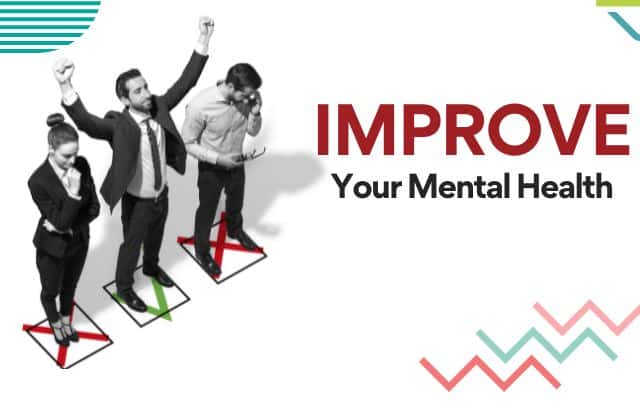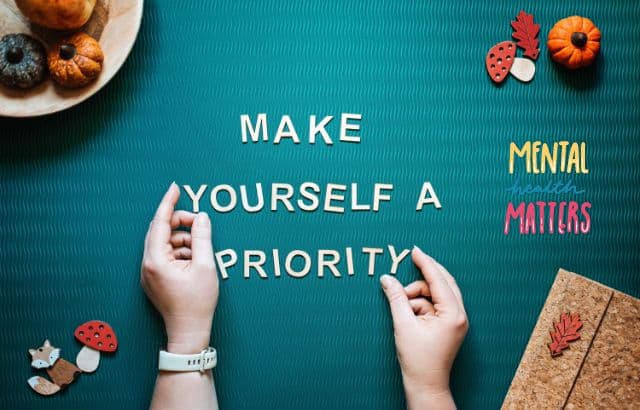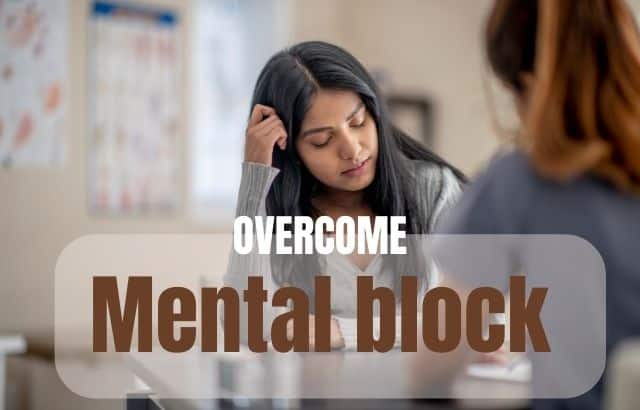In the hustle and bustle of our daily lives, mental health often takes a backseat. Yet, it’s the foundation of our well-being, influencing how we think, feel, and behave. In this unique blog post, we’ll embark on a journey into the realm of mental health, exploring its significance, understanding its intricacies, and shedding light on essential aspects such as mental health days, crises, evaluation, and more. Join us as we unravel the layers of the mind and discover the importance of nurturing our mental health.
Table of Contents
What is Mental Health?
Mental health encompasses our emotional, psychological, and social well-being. It affects how we think, feel, and act, influencing every aspect of our lives, from relationships and work to physical health and overall quality of life. Mental health is not merely the absence of mental illness but also the presence of resilience, coping skills, and a positive outlook on life.
Why Mental Health is Important?
Maintaining good mental health is essential for living a fulfilling and productive life. It enables us to cope with stress, navigate challenges, and build meaningful relationships. Poor mental health, on the other hand, can lead to a range of issues, including reduced productivity, strained relationships, and increased risk of mental illnesses such as depression and anxiety disorders.
How Mental Health Works:
Mental health is influenced by various factors, including genetics, environment, lifestyle, and life experiences. It involves a complex interplay of biological, psychological, and social factors that shape our thoughts, emotions, and behaviors. Taking care of our mental health involves practices such as self-care, seeking support when needed, and adopting healthy coping mechanisms.
Mental Health Crisis:
A mental health crisis refers to a situation where an individual experiences severe emotional distress or exhibits behaviors that pose a risk to themselves or others. It may involve symptoms such as suicidal thoughts, self-harm, psychosis, or severe anxiety or depression. Responding to a mental health crisis requires prompt intervention, support, and access to mental health services.
Common Mental Health Issues:
Mental health issues can manifest in various forms, including mood disorders (e.g., depression, bipolar disorder), anxiety disorders (e.g., generalized anxiety disorder, panic disorder), psychotic disorders (e.g., schizophrenia), substance use disorders, eating disorders, and personality disorders. Each condition has its unique symptoms, causes, and treatment approaches.
Exploring Mental Health Books:
Books offer valuable insights, inspiration, and practical strategies for improving mental health and well-being. From memoirs and self-help guides to scientific research and fictional works, there’s a wealth of literature available to explore different aspects of mental health, resilience, and personal growth.
Understanding Mental Health Statistics:
Mental health statistics provide valuable insights into the prevalence, impact, and treatment of mental illnesses worldwide. They highlight the scale of the problem, disparities in access to mental health care, and the importance of early intervention and prevention efforts. By understanding mental health statistics, we can advocate for greater awareness, resources, and support for mental health initiatives.
Mental Health Evaluation:
A mental health evaluation involves assessing an individual’s mental health status, symptoms, and needs through various tools and techniques, such as clinical interviews, psychological assessments, and diagnostic criteria. It helps identify mental health issues, develop personalized treatment plans, and monitor progress over time.
Conclusion: In a world where physical health often takes precedence, it’s crucial not to overlook the importance of mental health. By understanding what mental health is, why it matters, how it works, and exploring essential aspects such as mental health days, crises, evaluation, and resources, we can cultivate greater awareness, compassion, and support for mental health initiatives. Let’s embark on this journey together, nurturing our minds and embracing the power of mental wellness.
Mental Health Day:
World Mental Health Day, observed on October 10th each year, raises awareness about mental health issues and advocates for greater support and resources.
Mental Health Awareness Month:
Mental Health Awareness Month, observed in May, aims to educate the public, reduce stigma, and promote mental wellness through various activities, events, and campaigns.
Risk factors for mental health problems among older adults:
Hirav Shah says, “Health-care professionals and older people themselves intensely identify mental health problems and the stigma surrounding these conditions makes people reluctant to seek help.
Depression- The main and major loss that needs to be monitored closely. Mental health has an impact on physical health and vice versa. For example, older adults with physical health conditions such as heart disease have higher rates of depression than those who are healthy. Additionally, untreated depression in an older person with heart disease can negatively affect its outcome.
Elderly people are also vulnerable to elder abuse – including physical, verbal, psychological, financial abuse; abandonment; neglect; and serious losses of dignity and respect. Current evidence suggests that 5 out of 25 older people experience elder abuse. In addition, elder abuse can lead to physical injuries and serious, sometimes long-lasting psychological consequences, including depression and anxiety.”
10 Mental Health TIPS
Here are 10 ways to improve Mental Health
Eat Well
A very efficient and proper intake of foods helps in the proper growth of elders in order to keep them fit and healthy. This is one of the best ways to keep them active all the time. Healthy whole grains, fruits, and vegetables, pulses are the way to go. With healthier foods, the food is absorbed slowly, and thus there are no mood swings.
Good Sleep
Sleep is the major concerned element that can provide all beneficial things to the human body. Sleep releases many hormones in our body that make the right change for us. As with age, we become lighter sleepers; we need a longer sleep duration to get adequate rest. In addition, sleep improves concentration, memory formation and restores any cell damage, overall refreshing the body’s immune system.
Extra activities
A well-known and loving activity such as writing, reading, cycling, playing, singing, etc., might help keep the person young from the inside. With time on our hands as we age, identifying such activities and making an effort to engage in them can turn our day of loneliness into a day of enjoyment.
Exercise Regularly
Stay fit and staying healthy is the base that might help in staying perfect. Exercise is known to improve mood and emotional well-being. It thereby prevents mental health issues. The double bonus is that it improved your overall physical health as well.
Maintain proper relationship
Stay together: Stay in touch is the anthem that should be maintained once you turn old. Good relationships are the backbone of good mental health. It is often considered the most important contributor to happiness and well-being. Be it family, friends, colleagues, or neighbors, our relationships provide us with a support system that helps us cope with stressors and provides support in times of need for intervention. In addition, sharing our feelings with others is a proven method of de-stressing.
Include spirituality
Stay in touch with God; he stays in touch with you. The first and foremost impression that we Indians possess on the term is known as spirituality. Being involved in spiritual or religious practices has been linked with improved well-being for many people.
Get a pet
Care for a pet, and it cares for you more than you can do to yourself. Getting a pet involves caring for it, enjoying and relaxing with it. Even you might get new friends when you take it out on a walk in the evenings; along with that, walking helps you stay fit and active as much as you can. They are also likely to improve satisfaction and well-being.
Give to others
Give and take is a general policy and a form of kindness that helps you grow and stay happy at heart, even for small things that you usually used to. Performing small acts of kindness can give us a feeling of happiness and self-worth. It helps cancel out negative feelings about ourselves and leads to a feeling of contentment. You can engage yourself in the community, donate to a cause you believe in, or volunteer at an NGO. It will not only be a service to society but will also be a rewarding engagement.
Convert into a technophile & stay in touch
Be a part of technology and get closer to your people who stay away from you. Sending emails, messages, photos to friends and family can be a regular part of an elderly routine. Staying in touch on social media sites such as Whatsapp & Instagram can also prevent social isolation for the elderly, especially when their children live far, or in a different country.
Take care of health
Health is considered an important factor; health is wealth. The entire struggle we face is just because of it. Our mental and physical health are related, and maintaining physical health is significant in our attempt to maintain mental health. Making healthier life choices, taking time for exercise, and regular doctor’s visits can help achieve this goal. It is never too late to take control of your health.
Mental Health Quotes
1. “Self-care is not selfish; it’s essential for nurturing your mental well-being and resilience in the face of life’s challenges.”
Explanation: This quote emphasizes the importance of prioritizing self-care as a fundamental aspect of maintaining good mental health. It underscores the notion that taking care of oneself is not a luxury but a necessity for coping with stress and adversity.
Strategy: Incorporate self-care practices into your daily routine, such as exercise, meditation, hobbies, and quality sleep, to recharge your mind and body and build emotional resilience.
Execution: Allocate dedicated time for self-care activities, set boundaries to protect your mental health, and seek support from loved ones or professionals when needed.
2. “Embrace imperfection as a natural part of the human experience, and practice self-compassion to cultivate inner peace and acceptance.”
Explanation: This quote highlights the importance of adopting a compassionate and non-judgmental attitude toward oneself, especially during times of struggle or difficulty. It encourages individuals to let go of perfectionism and embrace their flaws and vulnerabilities with kindness and understanding.
Strategy: Practice mindfulness and self-awareness to recognize and challenge self-critical thoughts, and cultivate self-compassion through positive affirmations, self-care activities, and acts of kindness toward oneself.
Execution: Cultivate a supportive inner dialogue, celebrate progress over perfection, and remind yourself that you are deserving of love and acceptance, just as you are.
3. “Connection is the antidote to loneliness; nurture meaningful relationships and seek support from others to foster a sense of belonging and emotional well-being.”
Explanation: This quote emphasizes the importance of social connection and support in promoting mental health and resilience. It underscores the power of meaningful relationships in providing comfort, companionship, and a sense of belonging.
Strategy: Prioritize building and maintaining relationships with friends, family, and community members, and actively seek out opportunities for social interaction and support.
Execution: Schedule regular social activities, reach out to loved ones for emotional support when needed, and participate in group activities or support networks to combat feelings of loneliness and isolation.
4. “Mindfulness is the practice of being present in the moment, cultivating awareness and acceptance of thoughts, feelings, and sensations without judgment.”
Explanation: This quote defines mindfulness as a mental practice that involves focusing attention on the present moment and accepting experiences without criticism or attachment. It highlights the benefits of mindfulness in reducing stress, anxiety, and rumination.
Strategy: Incorporate mindfulness techniques into your daily routine, such as meditation, deep breathing exercises, or mindful walking, to cultivate greater awareness and resilience in the face of life’s challenges.
Execution: Dedicate time each day to mindfulness practice, start with short sessions and gradually increase duration, and experiment with different techniques to find what works best for you.
5. “Seeking professional help is a sign of strength, not weakness; prioritize your mental health and well-being by reaching out for support when needed.”
Explanation: This quote challenges the stigma surrounding mental health issues and encourages individuals to seek help from trained professionals without shame or hesitation. It reinforces the idea that seeking therapy or counseling is a proactive step toward self-care and personal growth.
Strategy: Normalize the idea of seeking therapy or counseling as a form of self-care and encourage open conversations about mental health in your community or workplace.
Execution: Research and reach out to mental health professionals or support services in your area, schedule regular therapy sessions if needed, and actively participate in your own healing and recovery journey.
Mental health FAQs
1. “How can I improve my mental health on a daily basis?”
Answer: Prioritize self-care activities such as exercise, meditation, healthy eating, and adequate sleep. Practice mindfulness and stress-reduction techniques, and seek social support from friends and family.
2. “When should I consider seeking professional help for my mental health?”
Answer: Consider seeking professional help if you’re experiencing persistent symptoms of depression, anxiety, or other mental health conditions that interfere with daily functioning and quality of life.
3. “What are some effective ways to manage stress and anxiety?”
Answer: Practice relaxation techniques such as deep breathing, progressive muscle relaxation, and mindfulness meditation. Engage in regular physical activity, maintain a healthy lifestyle, and seek professional support if needed.
Final Word
Mental health is one of the most important factors that need to be noticed early in everybody’s life. It is a state where people cannot control themselves based on their pressure levels or might be lonely. People these days often take precautions from psychiatrists to upgrade these mental issues that they’re going through. According to researchers, mental health stands first in making a person stand up straight. Mental health includes emotional, psychological, and social well-being. All these together make us perfect and proper humans, says noted Business Astrologer cum Astro Strategist Hirav Shah.


































